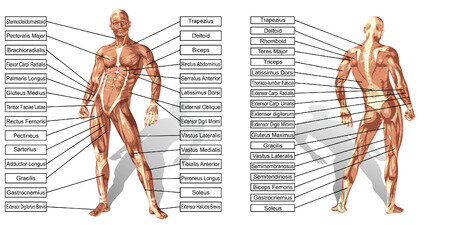Best Lawsuits & Disputes Lawyers in Hashemite Kingdom of Jordan
Share your needs with us, get contacted by law firms.
Free. Takes 2 min.
Or refine your search by selecting a city:
List of the best lawyers in Hashemite Kingdom of Jordan
About Lawsuits & Disputes Law in Hashemite Kingdom of Jordan
The Hashemite Kingdom of Jordan boasts a comprehensive legal system influenced by Islamic law, Ottoman codes, and modern legal principles. Lawsuits and disputes in Jordan typically arise from commercial matters, personal disputes, property claims, and contractual disagreements. The Jordanian judicial system consists of various courts, including civil, criminal, and administrative courts, which provide a structured environment for resolving such disputes. Arbitration and mediation are also commonly practiced, offering alternative routes for dispute resolution.
Why You May Need a Lawyer
There are several situations where individuals may require legal assistance in handling lawsuits and disputes. These situations include, but are not limited to, breach of contract cases, landlord-tenant disputes, employment-related conflicts, debt recovery, and family-related disputes such as divorce or inheritance issues. Lawyers in Jordan provide critical expertise in navigating the complexities of the legal system, ensuring that individuals’ rights are protected and that their cases are presented effectively in court or in alternative dispute resolution settings.
Local Laws Overview
Jordanian law incorporates aspects of Sharia law alongside civil codes, creating a unique legal environment. Key areas relevant to lawsuits and disputes include the Civil Procedures Law, which outlines the process and requirements for filing and prosecuting a civil lawsuit. The Jordanian Court of Cassation, as the highest judicial body, plays a pivotal role in interpreting laws and ensuring justice. Additionally, laws related to arbitration and mediation provide frameworks for resolving disputes outside of traditional courts, offering time-efficient and potentially less adversarial solutions.
Frequently Asked Questions
What is the typical process for filing a lawsuit in Jordan?
To file a lawsuit, an individual must submit a written complaint to the competent court, accompanied by relevant evidence and documentation. Legal representation is highly recommended to ensure compliance with procedural requirements.
How long does it typically take to resolve disputes in Jordan?
The duration of a legal dispute in Jordan can vary widely depending on the complexity of the case and the court's caseload. Simple cases may take a few months, while more complex cases can take years.
Can foreign nationals file lawsuits in Jordan?
Yes, foreign nationals can file lawsuits in Jordan. However, they are subject to the same legal procedures and may benefit from legal representation familiar with local law and regulations.
What alternative dispute resolution options are available?
Jordan recognizes arbitration and mediation as viable alternatives to litigation. These methods are often quicker and can be less costly than traditional court proceedings.
Is there a statute of limitations for filing lawsuits?
Yes, there are statutes of limitations that vary depending on the type of lawsuit. For example, commercial disputes typically have a limitation period of three years.
What role do courts play in dispute resolution?
Courts in Jordan handle formal dispute resolutions, interpret laws, and ensure justice. They facilitate the legal process from the filing of a lawsuit to delivering a verdict.
Are there specific courts for different types of disputes?
Yes, Jordan has specialized courts for civil, criminal, commercial, and administrative disputes. Each court has jurisdiction over particular types of cases.
How are judgments enforced in Jordan?
Judgments are enforced through the judicial system, with the possibility of involving law enforcement agencies if necessary. Execution courts handle the enforcement of judgments.
Can parties appeal court decisions?
Yes, parties can appeal court decisions to higher courts, such as the Court of Appeal and the Court of Cassation, subject to specific grounds and procedural rules.
How important is legal representation in resolving disputes?
Legal representation is crucial in navigating the complexities of Jordanian law, ensuring proper case presentation and protecting clients' rights effectively throughout the legal process.
Additional Resources
The Ministry of Justice provides resources and information related to the legal system in Jordan. The Jordanian Bar Association is a valuable resource for finding qualified legal professionals, and the Judicial Institute of Jordan may offer insights into judicial practices and training programs. Additionally, local universities often provide legal clinics that offer guidance and assistance.
Next Steps
If you require legal assistance, the first step is to consult with a qualified lawyer experienced in lawsuits and disputes within Jordanian law. Compile all relevant documents and provide a detailed account of your situation. Consider exploring alternative dispute resolution methods such as arbitration or mediation for a more expedient resolution. Reach out to professional legal associations for recommendations and ensure that your lawyer is registered with the Jordanian Bar Association. Being proactive and informed will significantly aid in achieving a favorable outcome in your legal matter.
Lawzana helps you find the best lawyers and law firms in Hashemite Kingdom of Jordan through a curated and pre-screened list of qualified legal professionals. Our platform offers rankings and detailed profiles of attorneys and law firms, allowing you to compare based on practice areas, including Lawsuits & Disputes, experience, and client feedback.
Each profile includes a description of the firm's areas of practice, client reviews, team members and partners, year of establishment, spoken languages, office locations, contact information, social media presence, and any published articles or resources. Most firms on our platform speak English and are experienced in both local and international legal matters.
Get a quote from top-rated law firms in Hashemite Kingdom of Jordan — quickly, securely, and without unnecessary hassle.
Disclaimer:
The information provided on this page is for general informational purposes only and does not constitute legal advice. While we strive to ensure the accuracy and relevance of the content, legal information may change over time, and interpretations of the law can vary. You should always consult with a qualified legal professional for advice specific to your situation.
We disclaim all liability for actions taken or not taken based on the content of this page. If you believe any information is incorrect or outdated, please contact us, and we will review and update it where appropriate.
Browse lawsuits & disputes law firms by service in Hashemite Kingdom of Jordan
Hashemite Kingdom of Jordan Attorneys in related practice areas.
Browse lawsuits & disputes law firms by city in Hashemite Kingdom of Jordan
Refine your search by selecting a city.















